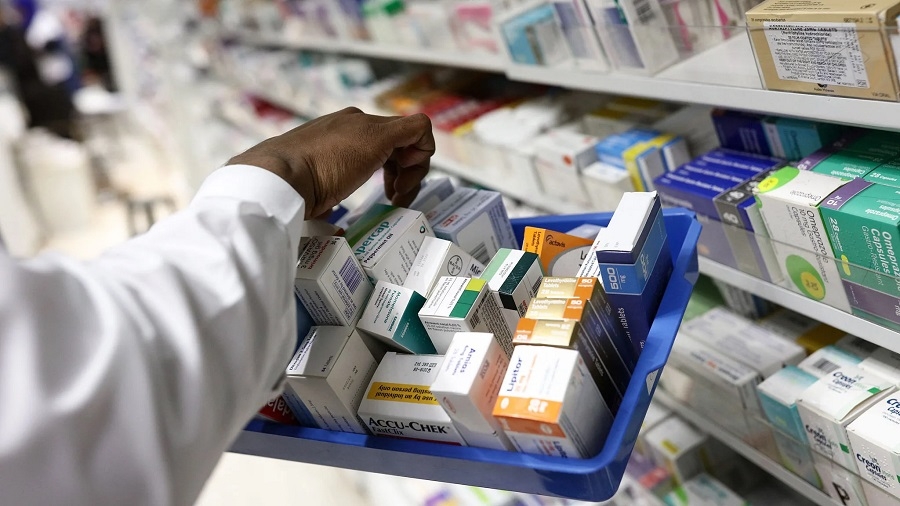Coronavirus hits Pharma industry in Vid hard
| Date :19-Feb-2020 |

By Rajendra Diwe :
EXPORT and trade of life-saving injectables, ophthalmic products and anti-cancer medicines have been badly hit by the Coronavirus outbreak in China. Vidarbha’s pharma industry is among the worst-affected by the pause in supplies from China as manufacturing of emergency injectables needed for critical surgeries has come to a halt. In MIDC Hingna, Arco Life Sciences (India) Pvt Ltd manufactures pharmaceuticals indictable and ophthalmic products.The company manufactures and exports life-saving emergency injectables required in critical surgeries. Since the outbreak of Coronavirus in China, the company along with others in Vidarbha are left with a limited stock. If the situation continues, supply of emergency injectables would come to a grinding halt.
“We are not able to supply lifesaving injectables and other emergency drugs required in procedures like angiography and other surgeries. The World Health Organisation (WHO) declared the Coronavirus outbreak a global health emergency on January 31, it led to protocols over travel and supplies being tightened globally, and the movement of materials and people becoming more restricted. This, combined with the Chinese Government’s containment strategy and decision to extend the Lunar NewYear holiday keeping factories and other large businesses closed, has spread uncertainty in drug manufacturing industry,” said Dr N D Agrawal, Director of Arco Life Sciences (India) Pvt Ltd.
Explaining the protocol required to be followed by manufacturers as per the recent directions Dr Agrawal said, “The Government of India’s Ministry of Agriculture and Farmer’s Welfare Plant Quarantine Division issued an instruction that commodities imported from China should be thoroughly inspected and samples should be tested in laboratory before according import clearance. The commodities require additional declaration for virus from freedom, the samples should be in laboratory for virus. If the facility for virus is not available in the station, the samples should be sent to Regional Plant Quarantine Station (RPQS) or any Indian Council for Agriculture Research (ICAR) Institute.
Such consignments will be released only after obtaining laboratory report declaring freedom from virus. “This entire procedure takes more than a month. And we as an industry cannot even use the ingredients required to manufacture the indictable.” he added. According to Dr Agrawal, pharmaceutical formulation industry would be affected by 70 per cent while the manufacturers of indictable by 80 per cent. “Pharmaceutical manufacturing industry in India is not self-sufficient. In the race to get cheap pharma ingredients, manufacturers are now relying on chemicals, active pharmaceutical ingredients, preservatives, the intermediates etc from China.
Indian Pharmaceutical industry is completely dependent on China,” Dr Agrawal added. Leading exporter of pharmaceuticals from Nagpur, Mohan Kale, Director of Kale Impex Private Limited, said export of anti-cancer drugs has been completely stopped. Strict restriction imposed on import of the drugs has dealt further setback to the entire industry. “We have completely stopped our exports of some anti-cancer molecules to China since one month. Even China has stopped supplying Active Pharmaceutical Ingredients (APIs) completely. It will largely affect the small and medium scale pharmaceutical industries. These companies have no infrastructure or provisions to manufacture APIs on their own in India as it is a very costly affair. Big companies can import these chemicals from UK or USA but they will have to pay more. Ultimately, the medicines manufactured by the big pharmaceutical companies will cost more. There would be a price escalation by 30 to 40 per cent,” said Kale.
Bad news for PCD business NAGPUR andVidarbha region is the capital for Propaganda Cum Distribution (PCD) and Franchise Manufacturing Companies. Nagpur city itself has more than 400 manufacturing units mushroomed in small flats. These companies are either owned by a syndicate of doctors or sales representatives from pharmaceutical companies. Their business depends solely on ingredients from China.“If the situation continues, these PCD companies would not be able to supply medicines as per the requirements of their ‘clients’. On one hand it is good that the mushrooming of pharmaceuticals would be curbed and patients would get quality medicines. But on the other hand, the number of sales personnel depending for their daily bread and butter on these companies would be affected badly,” Nilesh Kothari, a sales trainer pointed out.